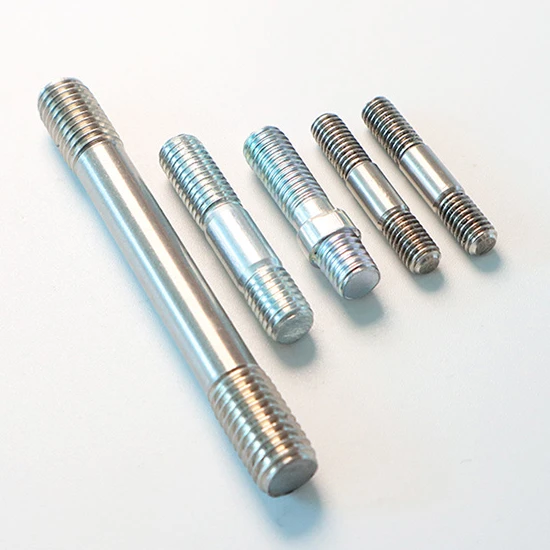In the world of construction and industrial applications, the importance of fasteners cannot be overstated. Among these, stud bolts hold a special place due to their versatility and reliability. Whether you’re embarking on a large-scale construction project or a detailed mechanical assembly, understanding the specifications of stud bolts can significantly impact the success and durability of your work. Let’s dive into the essentials of stud bolts specifications and why they matter.
What Are Stud Bolts?
Stud bolts are threaded rods with threads on both ends and an unthreaded section in the middle. They are commonly used in applications where a secure and precise fastening solution is required. Stud bolts are designed to be used with nuts on both ends, providing a strong and reliable connection that can withstand significant stress and strain.
Key Specifications of Stud Bolts
- Material:
- Carbon Steel: Offers a good balance of strength and cost-effectiveness, suitable for general-purpose applications.
- Stainless Steel: Provides excellent corrosion resistance, ideal for harsh environments and high-temperature applications.
- Alloy Steel: Enhanced strength and durability, used in demanding industrial settings.
- Dimensions:
- Diameter: Typically ranges from 1/4″ to 4″ depending on the application requirements.
- Length: Can be customized to fit specific needs, but standard lengths are readily available.
- Thread Pitch: Refers to the number of threads per inch (TPI), with coarse and fine options available to match different needs.
- Thread Type:
- Unified National Coarse (UNC): Commonly used for general applications due to its ease of assembly.
- Unified National Fine (UNF): Provides a tighter fit, suitable for high-stress applications.
- Coating:
- Galvanized: Adds a layer of zinc to prevent rust and corrosion, extending the lifespan of the bolt.
- Black Oxide: Offers mild corrosion resistance and an attractive finish.
- Phosphate: Provides a protective layer and enhances lubrication during assembly.
- Strength Grades:
- Grade 2: Low carbon steel, suitable for light-duty applications.
- Grade 5: Medium carbon steel, heat-treated for increased strength, used in automotive and structural applications.
- Grade 8: High-strength steel, used in heavy machinery and demanding environments.

Applications of Stud Bolts
Stud bolts are essential in various industries, including:
- Construction: For securing steel beams, columns, and heavy-duty structures.
- Automotive: Used in engine assembly, transmission systems, and suspension components.
- Oil & Gas: Critical for flange connections in pipelines and drilling equipment.
- Manufacturing: In machinery assembly, ensuring stability and precision.
Why Choose the Right Stud Bolts?
Selecting the correct stud bolts for your application ensures:
- Safety: Properly specified stud bolts prevent failures and accidents.
- Durability: High-quality materials and coatings resist wear and tear, extending the lifespan of your project.
- Performance: Matching the right specifications to your needs ensures optimal performance under various conditions.
Conclusion
Understanding stud bolts specifications is crucial for any construction or industrial project. By choosing the right material, dimensions, thread type, coating, and strength grade, you can ensure the safety, durability, and performance of your assembly. Whether you’re working on a major construction site or a detailed mechanical task, stud bolts provide the reliable fastening solution you need. Make informed choices and secure your projects with the right stud bolts today.
For more information and to explore a wide range of stud bolts, visit [Your Company Name] at [Your Website]. Our experts are ready to assist you in finding the perfect solutions for your specific requirements.